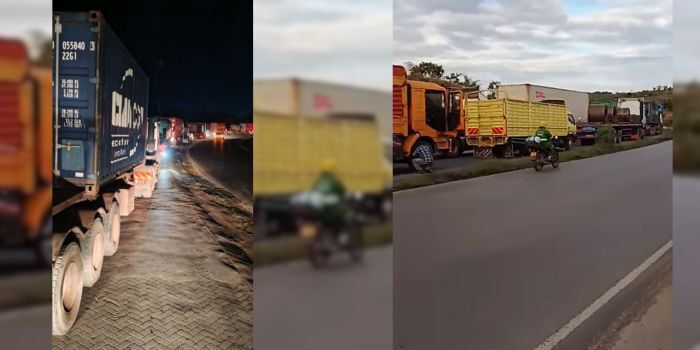RENEWAL FOR ECOWAS AT 50In spite of challenges, the sub-regional body is worthy of celebration - THISDAYLIVE
In spite of challenges, the sub-regional body is worthy of celebration
Conceived as a regional economic integration body 50 years ago, the Economic Community of West African States (ECOWAS) was founded with noble objectives. These included working towards the establishment of an economic union to raise the living standards of the people across the sub-region, maintaining and enhancing economic stability and contributing to the progress and development of member-countries. That regional integration and overall economic development came ahead of petty colonial considerations of whether the people spoke English or French was commendable from the beginning. While there have been challenges, the fact that the regional body has endured this far is worth celebrating.
Over this half century, some economic integration has happened. The free movement of persons and goods has progressed above institutional economic integration. ECOWAS is even more deserving of celebration at a time when most regional blocs elsewhere have come under severe stress. But there are also downsides. While trade, commerce and tourism seem to have progressed reasonably, the economies of the respective countries have been more independent than ever before. The goal of uninterrupted trade flow has also been deterred by civil wars and intra- regional headaches.
In more recent times, political instability in some member states as well as jihadist insurgency in the entire Sahel stretch have led to unexpected regime changes and sabre-rattling. For instance, there have been military takeover in Mali, Guinea, Burkina Faso, Niger and Chad. This has led to obvious political schism in ECOWAS with the exit of two of the founding members. Consequently, the envisioned unity of purpose has been more difficult to achieve. Besides, ECOWAS has in recent years designed many programmes meant to aggregate the benefits of economic integration within the sub-region for the good of member-countries without achieving such lofty objectives. One of them was to establish a monetary union across West African countries.
By the imagination of ECOWAS leaders, a single currency would be used across Anglophone West African countries within a stipulated time-frame. The other West African countries were to join five years later. With overwhelming evidence of limited consensus on key issues and resolutions that had to be made at extra-ordinary meetings where a full house would be more indicative of genuine commitment, it is no surprise that ECOWAS could not deliver on this promise.
However, it was both symbolic and significant that ECOWAS commemorated the 50th anniversary in Lagos where its treaty was signed in 1975 and that Yakubu Gowon, the only surviving founding father, was present. “The Treaty of Lagos was more than a legal document; it was a declaration of hope, the formation of a new regional chapter, and a charter of our collective destiny,” Gowon said at the occasion. “We envisioned an ECOWAS that would break artificial borders created by colonial administrators, facilitate trade, enable the free movement of people, and promote a culture of peace, understanding, and dialogue across our diverse region.”
Going forward, ECOWAS leaders must understand that it is one thing to sign treaties and regional agreements and quite another to settle down to the serious business of impactful governance. We note with dismay, for instance, the subsisting practice of using foreign economic consultants for tasks that Africans can handle. ECOWAS leaders must understand that development and regional integration are, first and foremost, about nurturing human capital to create a hub of capacities. Invariably, success is being measured by the number of meetings and resolutions, rather than by concrete achievements that impact the people.
Therefore, as President Bola Tinubu, who currently chairs the Authority of ECOWAS Heads of State and Government, reminded his colleagues last week, the golden jubilee of the regional body should not just be for celebration. It should also be a moment of renewal.
Page2
A REGIME OF PRUDENCE AND ACCOUNTABILITY
Uba Sani has steered the state in the right direction, writes JASMIL ABUBAKAR
A confident Governor Uba Sani of Kaduna State publicly declared on Wednesday night that, like a few others out of the 36 governors of the federation, he has not taken a single farthing from anywhere and anybody in form of loan as governor for the two years he has been in the saddle. This is so commendable. It is the direct result of a fiscal code that combines prudence, discipline, cost cutting, a heightened IGR drive and accountability.
In a chest thumping mode, Governor Uba Sani, basking in the successes recorded by his administration in the last 24 months, disclosed that he has not collected a single loan from any local or international financial institution since he assumed office. He stated this while fielding questions from some Kaduna-based broadcast journalists in Hausa, as part of the celebration of his two years in office.
Interestingly, in March 2024, Governor Sani revealed that he was finding it difficult to pay salaries because the state was reeling under the weight of accumulated debts and loans which he inherited from the previous administration of Mallam Nasir el- Rufai.
Speaking then at a Town Hall Meeting, Governor Uba Sani said the government actually needed to borrow to be able to pay workers’ salaries. The debt burden includes $587m, N85b and N115b contractual liabilities. He, however, declared that despite the financial challenges, his administration was resolute in steering the state towards progress and sustainable development.
Analysing the state’s finances, the governor said, “What we received from the federal allocation in Kaduna this month was N3.6 billion out of over N10 billion. The sum of N7.5 billion was deducted from our allocation to service debts.
“We cannot pay salaries without borrowing. Our salary bill is N5.2 billion. We will have to borrow N2 billion to be able to pay salaries.” That was the mountain he had to climb as the state’s Chief Executive Officer. That, and other financial constraints invariably brought out the best in him in terms of financial engineering, fiscal responsibility and accountability.
Governor Sani has this to say then: “Despite the huge debt burden of 587 million Dollars, 85 billion Naira, and 115 billion Naira contractual liabilities sadly inherited from the previous administration, we remain resolute in steering Kaduna State towards progress and sustainable development.
“We have conducted a thorough assessment of our situation and are sharpening our focus accordingly. It gladdened my heart to inform you that, despite the huge inherited debt on the state, till date, we have not borrowed a single kobo.”
It is heartwarming to note that so far he has successfully steered the state in the right direction. According to Governor Uba Sani, several banks had approached him to collect loans under different guises but he refused to accede to their requests because he doesn’t want to sink the state into further debt.
The governor disclosed that he cut the allowances and some perks of his Secretary to the State Government and Commissioners and other senior government functionaries in order to run an efficient administration.
‘’The Secretary to the State Government is a retired federal Permanent Secretary, who is also a former consultant with Food and Agriculture Organisation (FAO). Some of my commissioners were receiving big salaries in their former places of work. I persuaded them to forfeit their performance bonuses and to use the old cars that their predecessors used in the last administration. This is how we have been running the administration without collecting a single loan,’’ he added.
This aside, Governor Uba Sani also leveraged his contacts and the connections that he made during his career as a Human Rights activist and as a Senator, to secure grants from donor agencies. As an example, he named the Qatar Charity which is constructing the Kaduna Economic City and embarking on a mass housing project at the Millennium City.
Today, in a developing country like Nigeria where many states grapple with economic challenges, Kaduna State has emerged as a beacon of fiscal responsibility, prudence and innovative governance marked by financial discipline under the leadership of Governor Sani. Admittedly, his multifaceted approach to steer the state towards economic stability without resorting to borrowing is a feat that is increasingly rare in the current economic climate. His strategies, which include cutting the cost of governance, enhancing the state’s Internally Generated Revenue (IGR), and leveraging external grants, have collectively contributed to a more resilient and sustainable economic framework for Kaduna State.
One of the most significant steps taken by Governor Uba Sani was the implementation of stringent cost-cutting measures across various sectors of governance. Recognizing that a bloated bureaucracy can drain state resources, Sani has focused on streamlining government operations. This has involved reducing unnecessary expenditures, optimizing resource allocation, and eliminating wasteful practices that have historically plagued public administration in Nigeria.
By prioritizing efficiency, Governor Uba Sani has been able to redirect funds towards critical areas such as education, healthcare, and infrastructure development. This reallocation not only enhances service delivery but also fosters public trust in the government. The governor’s commitment to transparency and accountability has further reinforced this trust, encouraging citizens to support his initiatives and participate in the governance process.
A cornerstone of Uba Sani’s economic strategy, worthy of mentioning has been the aggressive enhancement of Kaduna State’s Internally Generated Revenue (IGR). Understanding that reliance on federal allocations can be precarious, Sani has sought to diversify the state’s revenue streams. His administration has implemented various reforms aimed at improving tax collection and broadening the tax base.
One of the key initiatives has been the digitization of tax collection processes, which has significantly reduced leakages and improved efficiency. By leveraging technology, the state has been able to track tax compliance more effectively and ensure that all eligible citizens contribute their fair share.
Furthermore, the governor has actively sought to promote local businesses and attract investments the establishment of business-friendly policies and incentives. This has encouraged both local and foreign investors to explore opportunities in Kaduna State, thus further bolstering the state’s IGR.
In addition to enhancing IGR, Governor Uba Sani has leveraged external grants and partnerships to support the state’s development agenda. This is commendable. What are friends and good relationships for? Recognizing that collaboration with international organizations, non-governmental organizations (NGOs), and development partners can provide much-needed resources, Sani has actively sought out these relationships. His testimony in this regard is that the administration has successfully secured grants for various projects, including infrastructure development, healthcare improvements, and educational initiatives. By aligning state priorities with the goals of these organizations, Sani has been able to attract funding that would otherwise be unavailable. This strategic approach not only alleviates the financial burden on the state but also ensures that critical projects are implemented effectively.
But by far more important is the fact that Governor Uba Sani’s vision for Kaduna State extends beyond immediate financial stability; he is also committed to sustainable development. His administration has prioritized projects that not only address current needs but also lay the groundwork for long-term growth. This includes investments in renewable energy, agriculture, and technology, which are essential for diversifying the state’s economy.
Uba Sani’s leadership in Kaduna State in the last two years has exemplified how prudent financial management, innovative governance, and strategic partnerships can create a resilient economic environment. By cutting costs, enhancing IGR, and leveraging external support, Sani has successfully navigated the state through challenging economic waters without resorting to borrowing. His commitment to sustainable development ensures that Kaduna State is not only economically stable but is also well-positioned for future growth.
Abubakar, a financial and economic analyst, writes from Abuja












